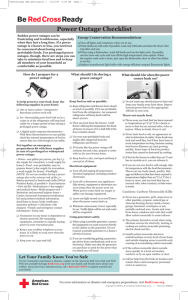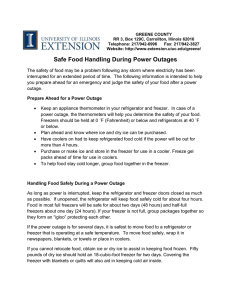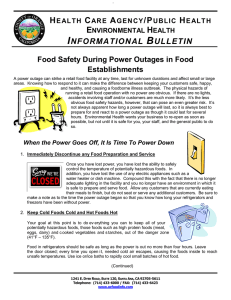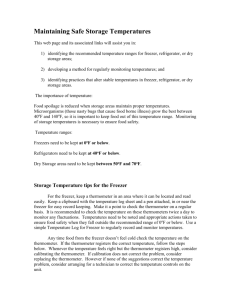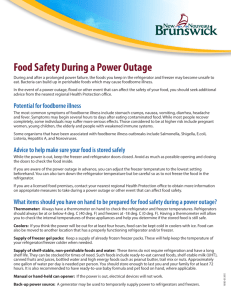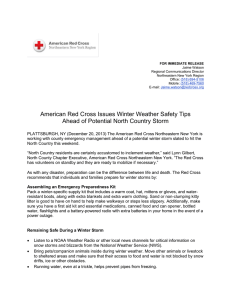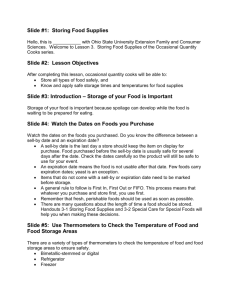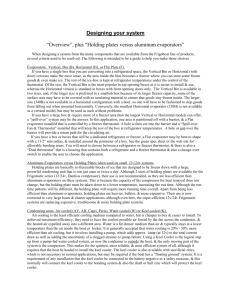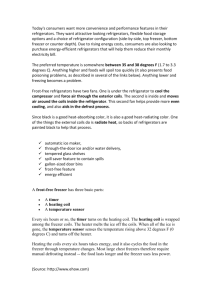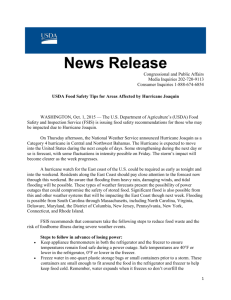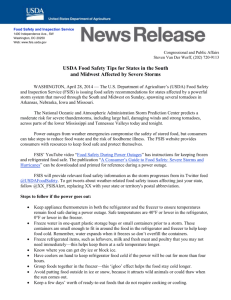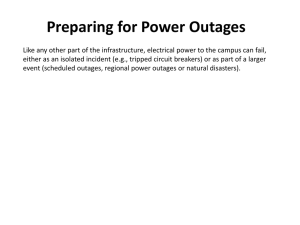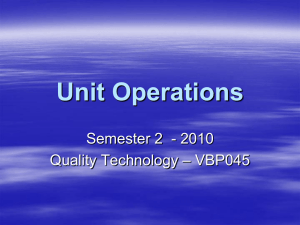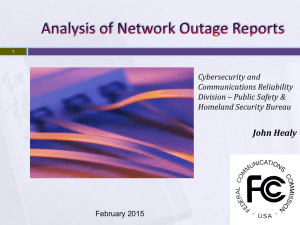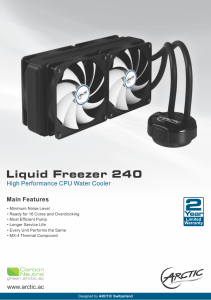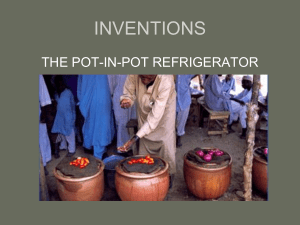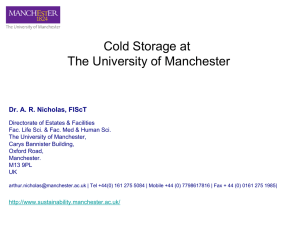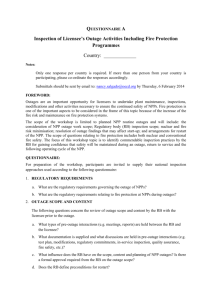Preparing For And Keeping Food Safe During A Power Outage
advertisement
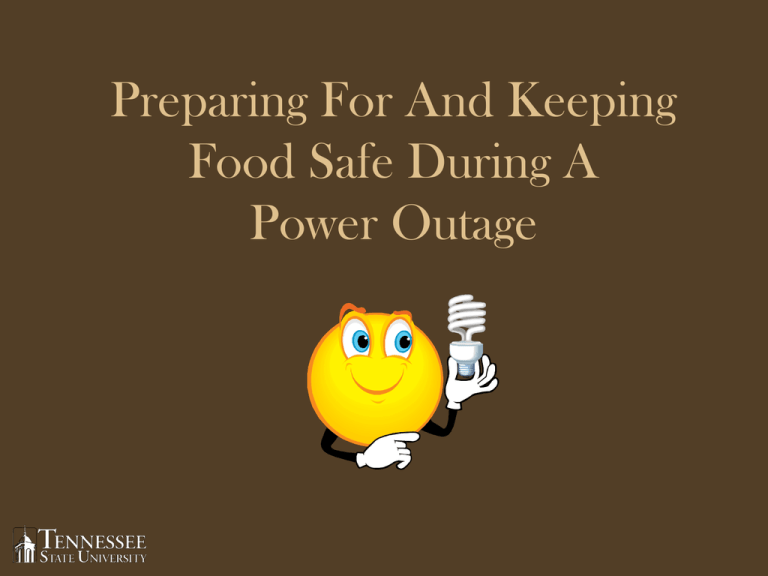
Preparing For And Keeping Food Safe During A Power Outage Preparing for a Possible Power Outage • Keep a thermometer in your refrigerator and freezer Preparing for a Possible Power Outage • Freeze Water – Wash the container thoroughly before using – Use to keep food cold if the power goes out – Use for drinking as it thaws Preparing for a Possible Power Outage • Purchase a generator • Have a cooler – This will be used to store food and keep it cold • Freeze refrigerated items that are not going to be used immediately – Meat – Milk and leftovers What to do during a Power Outage • Keep refrigerator and freezer doors closed – This will keep the food cold • Keep foods close together in the freezer – This will help the freezer keep its temperature longer • Place foods in a cooler with frozen ice or gel packs – Do this only if the freezer is full What to do during a Power Outage Cont. • Do not place food outside – Temperatures can vary – Animals might get the food • If it is cold outside: – Fill empty containers with water and place outside to freeze – Snow and ice can be used in a separate container – Use the frozen containers in the refrigerator, freezer, or cooler Preparing Food during a Power Outage • Heat foods outdoors – Camp Stoves – Grills – Contained Fires • Build a fire – Use the fireplace to heat food Handling Food After A Power Outage • Discard refrigerated perishable foods after 4 hours without power – Milk and other dairy products – Meat • Check the foods temperatures. – If the temperature is below 40˚F, the food should be safe to eat. Food Thermometer • Check for ice crystals on foods in the freezer. – Food can be refrozen or cooked. Handling Food After A Power Outage • Throw out any foods that have – Unusual texture – Color – Odor • NEVER TASTE food to see if it is safe. When In Doubt, Throw The Food Out! Wasting a few dollars now may save you discomfort, doctor bills or even a hospital stay later. Conclusion • Keep an appliance thermometer in both your refrigerator and freezer. • Keep the refrigerator and freezer doors closed during a power outage. • Use a cooler if the temperature rises above 40˚ F in the refrigerator or freezer. Conclusion • Never use camps stoves or grills indoors to cook food. • Discard all foods that have an unusual texture, color, or odor.
